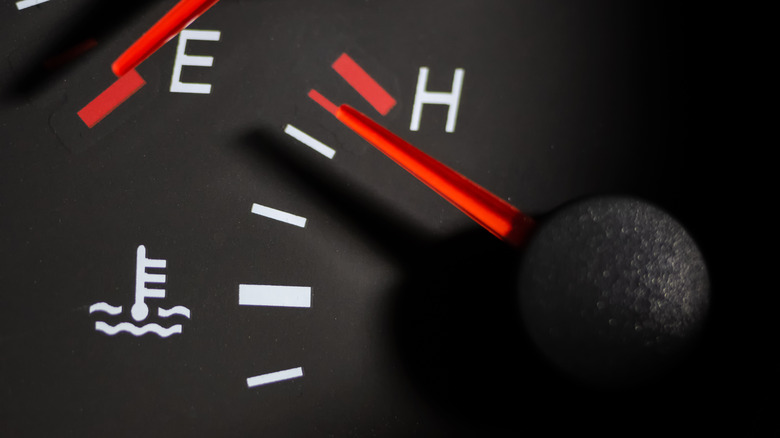
Thomas Barwick/Getty Images
When you’re waiting for an engine to cool down, it can feel like forever. Whether you’re hoping to perform a minor fluid fix or have a more serious mechanical issue, it takes a little while before we can start fiddling around a car and actually do something about it. But like waiting for food to cool down from the oven, it’s good to give it a bit, or you might burn yourself.
Advertisement
The average operating car engine temperature ranges from 195 to 220 degrees Fahrenheit. How long would it take to bring those numbers down? Every car is different, and the weather outside can be a factor as well. Even under normal circumstances in which a car’s cooling system is functioning effectively, it’s good to wait at least 30 to 45 minutes, and leave the hood up while doing so. A stranger may see this and ask if you need help, but that’s a small price to pay.
Why car engines get so hot, and bringing the temperature down

Yaraslau Mikheyeu/Getty Images
It’s normal for a car engine to be hot in an internal combustion engine, wherein fuel is rapidly oxidized in the engine’s cylinders. It essentially creates a series of tiny explosions which mechanically power the car and produce heat and exhaust gases. Under ideal conditions, that heat is at a stable level and helps disparate engine parts function well, until there’s too much of it.
Advertisement
The cooling system works to prevent this with a similar deceptive simplicity. As the coolant flows through the engine, it absorbs some of the heat, carrying it to the radiator which uses a series of fans to blow it away from the engine, with the process repeating over and over.
The engine tends to overheat when one of the systems breaks down, often indicated by that frightening moment when the temperature gauge on your dashboard rises above an acceptable level, and/or the warning light comes on. It could be a coolant leak from one of the components, the cooling fans malfunctioning, a faulty thermostat that prevents enough coolant from passing through the engine, a clogged engine air filter, or a failure with the radiator, among other potential issues.
Advertisement
Hopefully it’s one of the less expensive issues. But regardless, it’s important not to drive the car when it’s overheating and turn it off as soon as possible to avoid potentially worsening the damage.